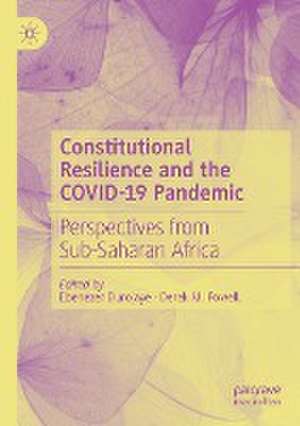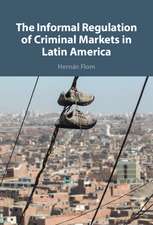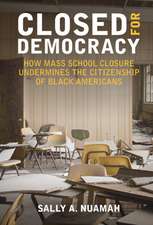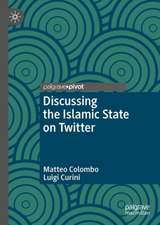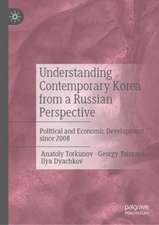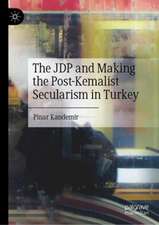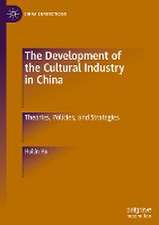Constitutional Resilience and the COVID-19 Pandemic: Perspectives from Sub-Saharan Africa
Editat de Ebenezer Durojaye, Derek M. Powellen Limba Engleză Paperback – 18 noi 2023
In emergency situations, such as the COVID-19 pandemic, a state has the right and duty under both international law and domestic constitutional law to take appropriate steps to protect the health and security of its population. Emergency regimes may allow for the suspension or limitation of normal constitutional government and even human rights. Those measures are not a license for authoritarian rule, but they must conform to legal standards of necessity, reasonableness, and proportionality that limit state action in ways appropriate to the maintenance of the rule of law in the context of a public health emergency.
Bringing together established and emerging African scholars from ten countries, this book looks at the impact government emergency responses to the pandemic have on the functions of the executive, the legislature, and the judiciary, as well as the protection of human rights. It also considers whether and to what extent government emergency responses were consistent with international human rights law, in particular with the standards of legality, necessity, proportionality, and non-discrimination in the Siracusa Principles.
| Toate formatele și edițiile | Preț | Express |
|---|---|---|
| Paperback (1) | 784.13 lei 6-8 săpt. | |
| Springer International Publishing – 18 noi 2023 | 784.13 lei 6-8 săpt. | |
| Hardback (1) | 789.35 lei 6-8 săpt. | |
| Springer International Publishing – 18 noi 2022 | 789.35 lei 6-8 săpt. |
Preț: 784.13 lei
Preț vechi: 956.26 lei
-18% Nou
Puncte Express: 1176
Preț estimativ în valută:
150.05€ • 155.03$ • 124.82£
150.05€ • 155.03$ • 124.82£
Carte tipărită la comandă
Livrare economică 20 martie-03 aprilie
Preluare comenzi: 021 569.72.76
Specificații
ISBN-13: 9783031064036
ISBN-10: 3031064038
Pagini: 405
Ilustrații: XV, 405 p. 6 illus.
Dimensiuni: 148 x 210 mm
Greutate: 0.5 kg
Ediția:1st ed. 2022
Editura: Springer International Publishing
Colecția Palgrave Macmillan
Locul publicării:Cham, Switzerland
ISBN-10: 3031064038
Pagini: 405
Ilustrații: XV, 405 p. 6 illus.
Dimensiuni: 148 x 210 mm
Greutate: 0.5 kg
Ediția:1st ed. 2022
Editura: Springer International Publishing
Colecția Palgrave Macmillan
Locul publicării:Cham, Switzerland
Cuprins
Chapter 1. Constitutional Resilience and the Covid-19 Pandemic (Derek Powell and Ebenezer Durojaye).- Chapter 2. International Human Rights Norms and Standards on Derogation and Limitation of Rights during a Public Emergency (Adetoun Adebanjo and Ebenezer Durojaye).- Chapter 3. Addressing Covid-19: A Test of Kenya’s Constitutional and Democratic Resilience (Josephat Muuo Kilonzo and Balla Galma).- Chapter 4. Covid-19 and Zambia’s Constitutional Dilemma (Christopher Phiri).- Chapter 5. Constitutional Resilience and Limitation of Rights under Covid-19 Response in South Sudan (Joseph Geng Akech).- Chapter 6. The Covid-19 Pandemic and Constitutional Resilience in The Gambia (Satang Nabaneh and Basiru Bah).- Chapter 7. Walking a Tightrope: Balancing Human Rights and Public Health Measures during the Covid-19 Pandemic in Nigeria (Olubayo Oluduro).- Chapter 8. The Constitutionality of Legal Measures Taken by the Government of Mauritius in the Context of the Covid-19 Pandemic (Roopanand Mahadew).- Chapter 9. Constitutional and Human Rights Issues Arising from Covid-19: Uganda’s Youth in Context (Robert Doya Nanima).- Chapter 10. The (Il)legality of Ghana’s Covid-19 Emergency Response: A Commentary (Bright Nkrumah).- Chapter 11. Constitutional and Human Rights Issues Arising from Covid-19 in South Africa (Robert Doya Nanima and Ebenezer Durojaye).- Chapter 12. Zimbabwe’s Response to Covid-19 and its Socio-economic Impact (Tinotenda Chidhawu).
Notă biografică
Ebenezer Durojaye is Professor and Head of the Socio-Economic Rights Project in the Dullah Omar Institute for Constitutional Law, Governance and Human Rights, University of the Western Cape, South Africa.
Derek M. Powell is Associate Professor of Law and Head of the Applied Constitutional Studies Project in the Dullah Omar Institute for Constitutional Law, Governance and Human Rights, University of the Western Cape, South Africa.
Derek M. Powell is Associate Professor of Law and Head of the Applied Constitutional Studies Project in the Dullah Omar Institute for Constitutional Law, Governance and Human Rights, University of the Western Cape, South Africa.
Textul de pe ultima copertă
‘This volume is a much-needed piece of the global puzzle of legal responses to the COVID-19 pandemic. The regional focus on constitutional law systems in Sub-Saharan Africa and their linkages to international law obligations offer a unique reference point, which will be of utmost importance for fostering an enhanced preparedness against similar future threats. The book is integral for understanding how the legal determinants of health unfold during pandemics.’
–Pedro A. Villarreal, Senior Research Fellow, Max Planck Institute for Comparative Public Law and International Law, Germany.
This book explores the resilience of constitutional government in the wake of the COVID-19 pandemic, connecting and comparing perspectives from ten countries in sub-Saharan Africa to global trends.
In emergency situations, such as the COVID-19 pandemic, a state has the right and duty under both international law and domestic constitutional law to take appropriate steps to protect the health and security of its population. Emergency regimes may allow for the suspension or limitation of normal constitutional government and even human rights. Those measures are not a license for authoritarian rule, but they must conform to legal standards of necessity, reasonableness, and proportionality that limit state action in ways appropriate to the maintenance of the rule of law in the context of a public health emergency. Bringing together established and emerging African scholars from ten countries, this book looks at the impact government emergency responses to the pandemic have on the functions of the executive, the legislature, and the judiciary, as well as the protection of human rights. It also considers whether and to what extent government emergency responses were consistent with international human rights law, in particular with the standards of legality, necessity, proportionality, and non-discrimination in the Siracusa Principles.Ebenezer Durojaye is Professor and Head of the Socio-Economic Rights Project in the Dullah Omar Institute for Constitutional Law, Governance and Human Rights, University of the Western Cape, South Africa.
Derek M. Powell is Associate Professor of Law and Head of the Applied Constitutional Studies Project in the Dullah Omar Institute for Constitutional Law, Governance and Human Rights, University of the Western Cape, South Africa.
–Pedro A. Villarreal, Senior Research Fellow, Max Planck Institute for Comparative Public Law and International Law, Germany.
This book explores the resilience of constitutional government in the wake of the COVID-19 pandemic, connecting and comparing perspectives from ten countries in sub-Saharan Africa to global trends.
In emergency situations, such as the COVID-19 pandemic, a state has the right and duty under both international law and domestic constitutional law to take appropriate steps to protect the health and security of its population. Emergency regimes may allow for the suspension or limitation of normal constitutional government and even human rights. Those measures are not a license for authoritarian rule, but they must conform to legal standards of necessity, reasonableness, and proportionality that limit state action in ways appropriate to the maintenance of the rule of law in the context of a public health emergency. Bringing together established and emerging African scholars from ten countries, this book looks at the impact government emergency responses to the pandemic have on the functions of the executive, the legislature, and the judiciary, as well as the protection of human rights. It also considers whether and to what extent government emergency responses were consistent with international human rights law, in particular with the standards of legality, necessity, proportionality, and non-discrimination in the Siracusa Principles.Ebenezer Durojaye is Professor and Head of the Socio-Economic Rights Project in the Dullah Omar Institute for Constitutional Law, Governance and Human Rights, University of the Western Cape, South Africa.
Derek M. Powell is Associate Professor of Law and Head of the Applied Constitutional Studies Project in the Dullah Omar Institute for Constitutional Law, Governance and Human Rights, University of the Western Cape, South Africa.
Caracteristici
Highlights the role that data, science and technology have played in African states' responses to the COVID-19 pandemic Focuses on the impact of emergency measures on the rights of marginalized groups, including women, children and the poor Offers recommendations for strengthening human-rights-based approaches to government interventions for future pandemics
